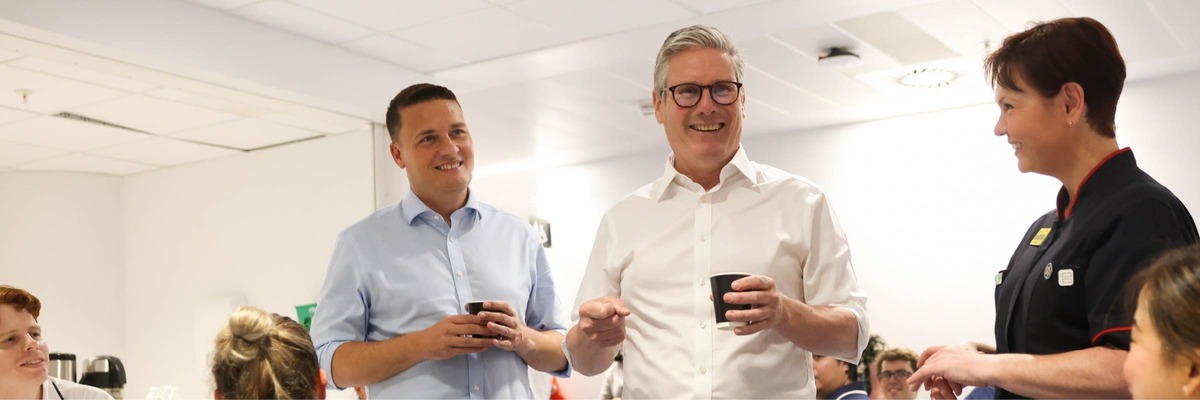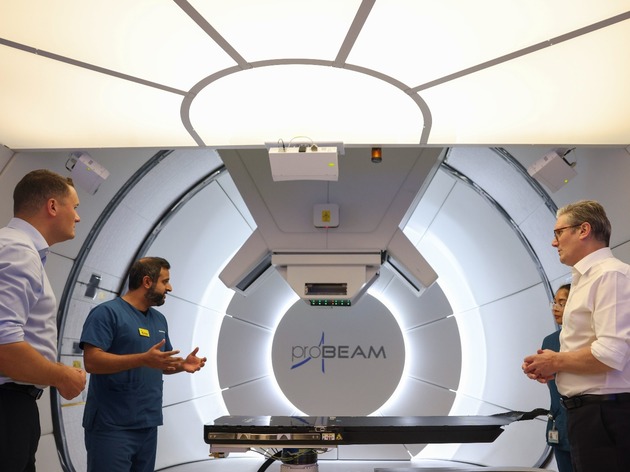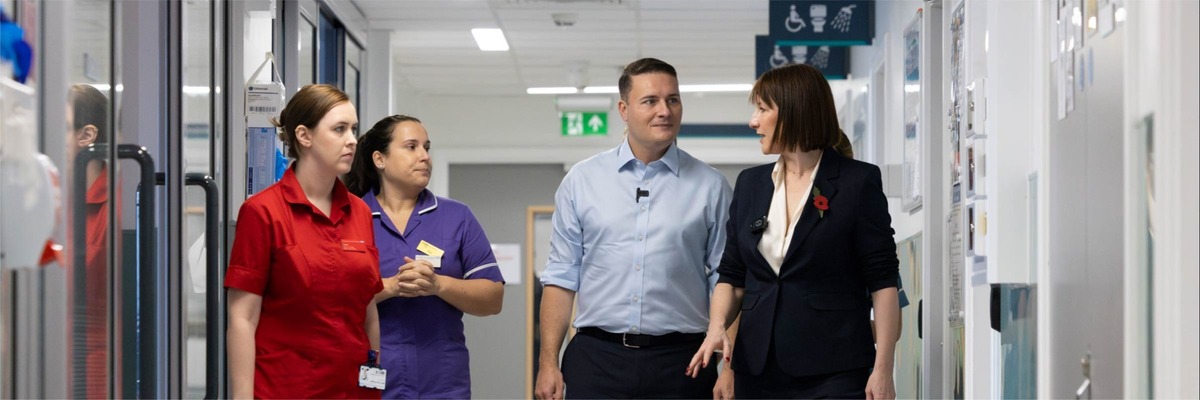
Build an NHS Fit for the Future
Milestone: Ending hospital backlogs
The starting point
For decades, the NHS has served us well, with the enduring principle that everyone should get healthcare that is free at the point of use.
Yet, Lord Darzi’s independent investigation into the NHS found the health service is in “critical condition”.
The investigation laid bare the challenges the NHS and the nation’s health are facing. But it has also made it absolutely clear that total, fundamental and long-term reform of our NHS is critical to its survival: a total reimagining of the NHS.

Lord Darzi found the NHS is failing to deliver on one of its most important promises: timely access to care.
In England, the waiting list for elective treatment stood at 7.6 million in September 2024, with more than 3 million waiting over 18 weeks, people are waiting too long to get the GP or NHS dentist appointments they need, and 10% of patients are now waiting for 12 hours or more in A&E.
Long waits have become routine and public satisfaction is, understandably, at a record low as a result. But the pressures facing the NHS are symptomatic of a wider set of issues. As Lord Darzi’s investigation found, there has been a deterioration in the nation’s health.
People are spending more of their lives in ill-health and the gap in healthy life expectancy between the poorest and richest is growing.
This is not just bad for those people, but is a drag anchor on the wider economy. There are 2.8 million people out of work due to health conditions, creating a cycle of poor health and poverty for many, holding back opportunities and economic growth.

If we get this right, we can look back on our time with pride and say we were the generation that took the NHS from the worst crisis in its history, got it back on its feet and made it fit for the future.
The Rt Hon Wes Streeting MP, Secretary of State for the Department of Health & Social Care
The NHS is broken but not beaten. As Lord Darzi found, its “vital signs remain strong”. The long-term survival of the health service depends on both investment and, more importantly, reform.
The Budget started to address these problems, with a nearly £26 billion boost for the healthcare system, across day-to-day spending and capital investment, over 2 years. But investment alone is not the solution – investment must come with reform. That is what the health mission will deliver – fundamental reforms to improve the way care is provided: improving people’s health and putting the NHS on a more sustainable footing.
We will capitalise on the scientific and technological revolution happening all around us to deliver better outcomes for patients and better value for taxpayers’ money.
Our long-term mission
Our mission to build an NHS fit for the future starts with tackling waiting lists. We will make progress towards returning to NHS performance standards and improve access to services. We want to see fewer lives being lost to the biggest killers, including cancer, cardiovascular disease and stroke, and suicide.
This means diagnosing and treating patients earlier and enabling people to better manage their health and care.
People deserve to live in a fairer Britain, where everyone lives well for longer. A healthy society and functioning health system should also ensure people can live their life to the fullest without major health issues holding them back.
By addressing the main underlying drivers of ill-health and tackling persistent inequalities in health, we will put the NHS on a sustainable footing for the future.
Delivering the mission requires 3 big reform shifts, which will be central to the government’s 10 Year Health Plan, to be published in spring 2025.
These are fundamental and necessary reforms in the way our health services deliver care and address the very challenges that Lord Darzi identified in his report. First, from ‘hospital to community’, bringing care closer to where people live, including through a new neighbourhood health service to deliver more proactive and personalised care.
Second, from ‘analogue to digital’, by rolling out new technologies and digital approaches to modernise the NHS, including bringing together a single patient record, owned by the patient, shared across their care teams, putting people in control of their own health.
And third, from ‘sickness to prevention’, shortening the amount of time people spend in ill-health by preventing illnesses before they happen, as well as earlier identification and management of chronic conditions.
We will work in partnership with the public, clinicians and experts as part of the biggest national conversation about the future of the NHS since its birth so that the 10 Year Health Plan pulls on the ideas and expertise of patients, staff and the wider public.
Our milestone
People should have access to health and care when they need it. We cannot be successful in our health mission without getting the NHS back on its feet and bringing waiting lists under control.
This Parliament, our health milestone is to end hospital backlogs by delivering our ambitious milestone of meeting the NHS standard that 92% of patients should wait no longer than 18 weeks from referral to start consultant-led treatment of non-urgent health conditions.
How will we achieve this milestone?
As promised in the manifesto, the government’s immediate priority has been to get a grip on record waiting lists.
To put us on track to reducing waiting times for elective care, the 2024 Autumn Budget provided funding to support the NHS to deliver the first step of an extra 2 million NHS operations, scans, and appointments a year in England, equivalent to 40,000 additional appointments a week.
Our milestone for change is ambitious, requiring a significant reduction in waiting list times with challenging public finances. For this reason, investment alone is not the answer: we will only deliver our milestone by reforming elective care. Working with the NHS, our next steps will:
- Transform how elective care is delivered, improving productivity, and the way in which patients receive care, including more direct and timely diagnostic test referrals and results, increasing the availability of testing in communities and neighbourhoods. The capital investment provided in Autumn Budget 2024 will fund new surgical hubs and diagnostic scanners to build capacity.
- Transform patients’ experience of care, by embracing technology. Care will be centred around patients’ lives and choices, as opposed to being inflexible and outdated. We will transform the NHS app, giving users the information they need to navigate and take control over their care.
-
Transform the model of care to make it more sustainable. There will be an increased focus on prevention throughout a patient’s care journey, dealing with issues earlier when they are easier to treat or cure. Siloed models of care will be reformed to improve patient experience and outcomes.
Referral processes will be effective and informed, with GPs having easier access to specialist clinical advice, and the priority will be to provide the right care, in the right place, at the right time, which may not be in a hospital setting.
Mapping our progress
Our interactive map highlights some of the services this government is boosting and transforming to improve patient access to services and to cut waiting lists; building an NHS fit for the future. Use our map to see where your nearest new services are.